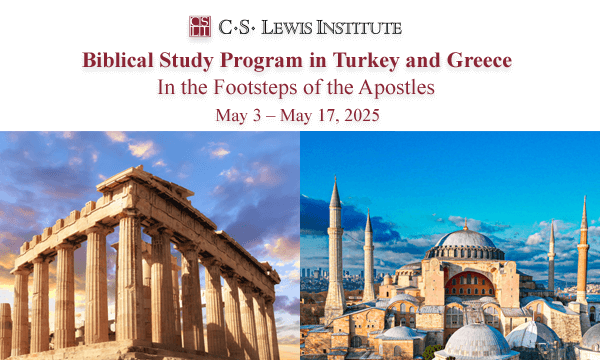Back to series



Spiritual Light
Click here to open a Print - Friendly PDF
It is said that Augustine in his pre-conversion days had serious problems with the Scriptures.
He had been trained in all the fine points of rhetoric and was offended by the Bible’s simplicity. The Scriptures did not meet Augustine’s standard of style and eloquence. Yet one day he was in a garden and thought he heard some voices—perhaps some children playing a game—saying, “Take and read, take and read.” Immediately he picked up a Bible, let it fall open, and read the first verse he saw. It was Romans 13:13-14,
…not in carousing and drunkenness, not in sexual promiscuity and sensuality, not in strife and jealousy, but put on the Lord Jesus Christ, and make no provisions for the flesh in regards to its lust.
Augustine’s problem was directly confronted. He was convicted of his sin. The simple Scripture was a means of his conversion. The simple language he had once despised had come alive to him.
One of the aspects of the Holy Spirit’s work is to illuminate—to shed light upon the Scriptures. The Holy Spirit does this not only in cases like Augustine’s, where the end is conversion, but also in the daily lives of believers. There is nothing more necessary to complete understanding of Scripture than the light of the Spirit. Paul, for example, prays for the Ephesians,
…that the God of our Lord Jesus Christ, the Father of glory, may give you a spirit of wisdom and of revelation in the knowledge of Him. I pray that the eyes of your heart may be enlightened so that you may know what is the hope of His calling, what are the riches of the glory of His inheritance in the saints (Eph. 1:17-18).
The Spirit is the one who enlightens us. The Word of God is our source of wisdom, revelation, and knowledge. It is important when studying Scripture to use every means available to arrive at the meaning of a text. Commentaries, theological dictionaries, Greek and Hebrew lexicons, and a careful method of interpretation are all of value. However, if our study stops with the use of external means, we fall short of complete understanding. Spiritual understanding is the highest gift that God can give. Jonathan Edwards says in a sermon, “Divine and Supernatural Light:”
Spiritual wisdom and grace is the highest and most excellent gift that God ever bestows on any creature: in this the highest excellency and perfection of a rational creature consists.
We could listen to this emphatic language and ask, what does the illumination of the Spirit add to our understanding? If there is only one literal sense to Scripture, surely this could be discovered by anyone’s objective study of text. Could not a non-Christian arrive at a proper understanding of a text? The answer is yes and no. Yes, they could have an accurate understanding of the passage. No, there are levels of meaning that they would miss. There is a difference between having a true opinion about a text and having a full sense of its significance. It is possible to grasp an idea with the mind and yet sense neither its truth, nor goodness, nor beauty. It is possible to understand that God’s holiness is a fact without feeling a sense of its excellence.
The Holy Spirit’s illumination of Scripture does not reveal any new words, propositions, or doctrines. He gives us a deep sense of truth. The Spirit drives home in the heart and conscience what the mind understands. We ought to pray with the psalmist, “Open my eyes, that I may behold wonderful things from thy law” (Psalm 119:18). This deep sense of the beauty of God’s word leads to assurance and conviction of its truth. Paul’s goal for the Laodiceans and Colossians was that they might have
…a full assurance of understanding, resulting in a true knowledge of God’s mystery; that is, Christ Himself… (Col.2:2).
This assurance is so important that John Owen wrote:
…there is not any truth of greater importance for men to be established in; for unless they have a full assurance of understanding in themselves, unless they hold their persuasion of the sense of Scripture revelations from God alone…they will never be able to undergo any suffering for the truth or to perform any duty unto God in a right manner.
Our own doubts often hinder our worship, obedience, and service to others. Above all, the Spirit gives us confidence and boldness. Luther, in his Bondage of the Will, argues against Erasmus on the place of assertions in the Christian life. Erasmus is wary of any assertions. Luther, on the contrary, maintains, “Take away assertions and you take away Christianity.” The mark of the Christian should be assurance and confidence in believing God’s truth. The Christian is one who asserts because the Holy Spirit has given a firm grasp of the truth. Thus, Luther says to Erasmus:
Leave us free to make assertions and to find in assertions our satisfaction and delight; and you may applaud your skeptics and academics…the Holy Spirit is no skeptic, and the things He has written on our hearts are not doubts or opinions but assertions—surer and more certain than life itself.
If we desire this sense of the beauty of God’s truth, if we desire this assurance and confidence, if we desire this spiritual wisdom, we must ask for it. James 1:5 says, “…if any of you lacks wisdom, let him ask of God…and it will be given to him.” Later in the same book it says, “You do not have because you do not ask” (James 4:2).
It would be a good rule always to pray for the Spirit’s help and guidance before and after reading the Scripture. We should pray that the Spirit shed his light upon our hearts so that we might sense the power and goodness of Scripture and become established in a full assurance of understanding. I believe that if we put this into practice it will revolutionize our study of Scripture. Jesus says in Luke 11:13, “…how much more shall your heavenly Father give the Holy Spirit to those who ask Him?” If we ask for the Spirit’s illumination, He will help us to have a deeper sense of the truth, goodness, and beauty of a text; its application to our lives; and the ability to powerfully communicate to others the truths we learn. Above all, we will come to a deeper assurance of the truths God has revealed to us and give Him praise for all He has said and done for us.

Arthur W. Lindsley
Senior Fellow for Apologetics, CSLI Arthur W. Lindsley is the Vice President of Theological Initiatives at the Institute for Faith, Works, & Economics. He has served at the C.S. Lewis Institute since 1987 both as President until 1998 and currently as Senior Fellows for Apologetics. Formerly, he was director of Educational Ministries at the Ligonier Valley Study Center, and Staff Specialist with the Coalition for Christian Outreach. He is the author of C.S. Lewis's Case for Christ, True Truth, Love: The Ultimate Apologetic, and co-author with R.C. Sproul and John Gerstner of Classical Apologetics, and has written numerous articles on theology, apologetics, C.S. Lewis, and the lives and works of many other authors and teachers. Art earned his M.Div. from Pittsburgh Theological Seminary and a Ph.D. in Religious Studies from the University of Pittsburgh. COPYRIGHT: This publication is published by C.S. Lewis Institute; 8001 Braddock Road, Suite 301; Springfield, VA 22151. Portions of the publication may be reproduced for noncommercial, local church or ministry use without prior permission. Electronic copies of the PDF files may be duplicated and transmitted via e-mail for personal and church use. Articles may not be modified without prior written permission of the Institute. For questions, contact the Institute: 703.914.5602 or email us.
COPYRIGHT: This publication is published by C.S. Lewis Institute; 8001 Braddock Road, Suite 301; Springfield, VA 22151. Portions of the publication may be reproduced for noncommercial, local church or ministry use without prior permission. Electronic copies of the PDF files may be duplicated and transmitted via e-mail for personal and church use. Articles may not be modified without prior written permission of the Institute. For questions, contact the Institute: 703.914.5602 or email us.
-
Recent Podcasts
Believing is Seeing, A Scientist’s Journey to God – Dr. Michael Guillen’s Story
by Michael Guillen on April 25, 2025Dr. Michael Guillen, Harvard physicist, former ABC News...Read More
-
A Welcome Change in Apologetics
by Randy Newman on April 18, 2025
-
Resisting God – Dr. John W. Taylor’s Story
by Jana Harmon, John Taylor on April 11, 2025
-
Recent Publications
Who Is The Real Jesus?
by John R.W. Stott on April 1, 2025The 21st century has provoked many conversations and...Read More
-
Does the Modern World Face a Crisis of Meaning?
by Cameron McAllister on March 1, 2025
-
The Impact of Technology on the Christian Life
by Tony Reinke on February 14, 2025
0
All Booked
0.00
All Booked
0.00
All Booked
18008
GLOBAL EVENT: 2025 Turkey & Greece Study Program – In the Footsteps of the Apostles
https://www.cslewisinstitute.org/?event=global-event-2023-biblical-study-program-of-israel&event_date=2025-05-03®=1
https://www.paypal.com/cgi-bin/webscr
2025-05-03

Next coming event
Days
Hours
Minutes
Seconds
GLOBAL EVENT: 2025 Turkey & Greece Study Program – In the Footsteps of the Apostles
On May 3, 2025 at 3:00 pmat İstanbul, TürkiyeSpeakers

Arthur W. Lindsley
Senior Fellow for Apologetics, CSLI
Team Members





